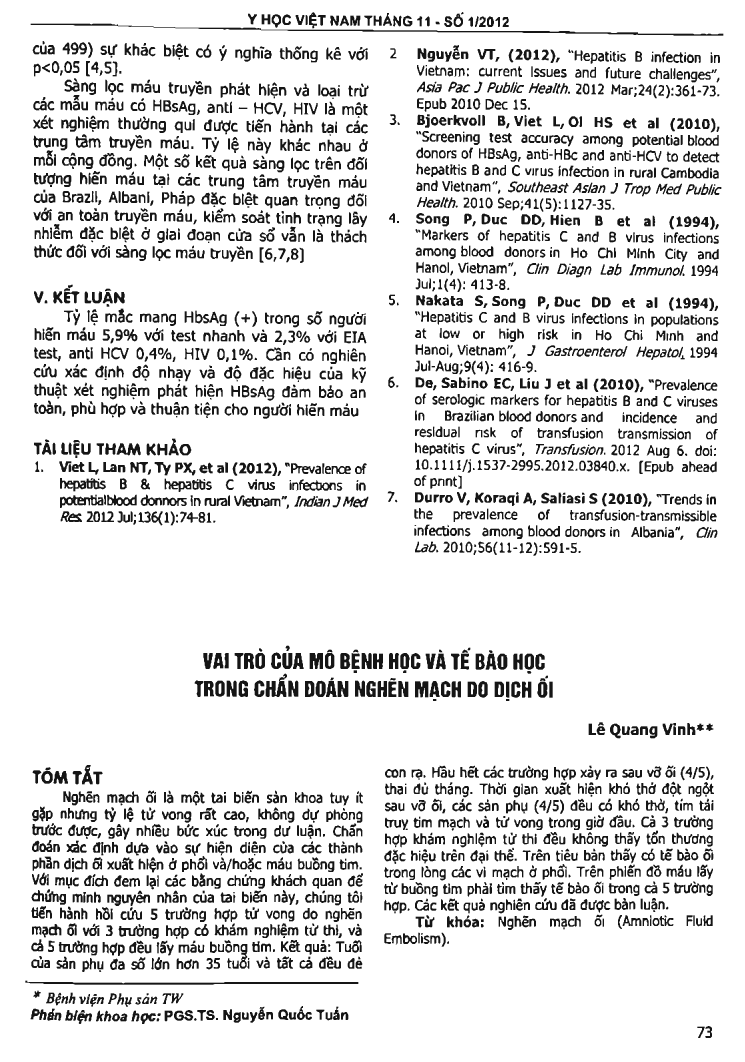
Amniotic Fluid Embolism (AFE) represents a rare but highly fatal and unpreventable obstetric complication, which may draw negative public's attention. Diagnosis of AFE is based on the presence of amniotic romponents in the lung and/or heart cavities. This study was ronducted aiming at achieving objective evidences of the causes of AFE. The authors conductecl a retrospective study of five death cases diagnosed with AFE, induding three cases with autopsy; and blood samples of heart cavity were taken in all five cases. Results: Most of the women were over 35 year old and multipara. Four out of five cases happened after amniotic sac rupture of a full term pregnancy, with a sudden dispnea, cardiovascular rollapse and died within one hour. In all three cases with autopsy, generally there were no specific lesion found. On microsrope, amniotic cells and fetal parts were found inside the lung capillaries. Amniotic cells were found in blood samples taken from the right heart cavity in all the five cases. The results were followed by the discussion.
- Đăng nhập để gửi ý kiến
